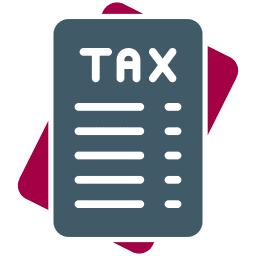How Can We Help
Contact us to find out how TRW Accountants can help you with your accounting needs.
Understanding the Legislation Around Sole Trader Payment
Understanding the Legislation Around Sole Trader Payment
In theory, sole traders have the fewest restrictions on how they pay themselves and how much to pay themselves. In practice, there are a lot of considerations to keep in mind, both in terms of your business’ continued success and in terms of tax obligations.
As experienced small business accountants, we wanted to lay out the general principles you should keep in mind.
As always, not everything we raise here will apply to your specific business situation. If you’re unsure where you stand, we’d be happy to talk.

Providing Independent Financial Advice In Lancashire
How Much Should You Pay Yourself?
As a sole trader, your financials are not distinct from your business’ financials. That’s the big lure of forming a limited company – financial liabilities from business don’t affect your personal finances and vice versa.
This doesn’t mean you can’t have one bank account for personal use and another for use as the business (and this is usually recommended – it helps keep records straight, provides a useful psychological divide between what you’ve paid yourself and what’s earmarked for business, and especially if your personal account is shared with a partner, it provides an extra level of control).
Any money you pay yourself from your business is referred to as a drawing. It should be paid from business profits, and you will need to keep a record of your drawings.
These records will be used on your self-assessment tax return, and they affect your income tax and National Insurance contributions. Drawings are not deductible – they aren’t classed as wages – so the amount of your drawings also affects tax for your business every year.
For this reason, you should never make a drawing large enough that the business doesn’t retain money for:
- Ongoing costs
- Other expenses
- Tax on profits payable

Providing Independent Financial Advice In Lancashire
What’s Tax Like for Sole Traders?
Income tax for sole traders is very similar to employees. Living in England, if you earn under £50,270, you’ll pay no tax on the first £12,570, and 20% on the remainder. If your income is higher than that you’ll pay 40% on the remaining income up to £125,140, and then 45% on income beyond that.
However, there’s an extra wrinkle, which is that between £100,000 income and £125,140, your personal allowance is reduced by £1 for every £2 you earn, and it’s entirely gone once you hit £125,140. This can make tax calculations for income in this bracket more complicated – if you’re not sure, it’s always worth getting someone to check!
For National Insurance, you’re likely to be paying Class 4 National Insurance (6% on total drawings between £12,570 and £50,270, and 2% on drawings above that level).
If your total drawings are below £6,725 a year, your National Insurance contributions are Class 2 and are treated as being paid. Between that and £12,569, you do not have to pay National Insurance but would not earn contributions if you don’t. You can however voluntarily make Class 2 contributions.
As always, if you have income from any other sources, these should also be factored into your calculations according to the regulations governing that income source.
When deciding on a maximum size for a drawing, we recommend that you factor in some leeway above your current predicted tax, so that if there’s an issue you’ll have wiggle room.
However, you may want to keep drawings lower than that rate to instead invest more money back into the business. If handled shrewdly, this will usually allow you to grow your business faster which can pay dividends in the long run.

Providing Independent Financial Advice In Lancashire
When Should You Pay Yourself?
Drawings can be taken at any time, which is arguably one of the biggest advantages of them. However, many sole traders still try to stick to a regular date to take drawings. This isn’t just habit from days when they drew a salary; it means you’re checking once a month or so to see the state of your business, and many of your larger outgoings will go at the same time every month anyway – so having a drawing just beforehand means you’re always sure you’ll have the money for them.
Your tax obligations and efficiencies will vary from case to case, and specific industries may mean other regulations are in play. If you have any further questions, or especially if you would prefer professional support, please get in touch and we’ll be happy to help.

Professional Accounting And Financial Advice
Contact TRW Accountants
Address:
TRW Accountants
95 King Street
Lancaster, LA1 1RH
Contact Details:
Tel: 01524 64187
Fax: 01524 60029
Email: office@tr-w.co.uk
Registered in England and Wales. Registered office – as above. Company registration 03851905




